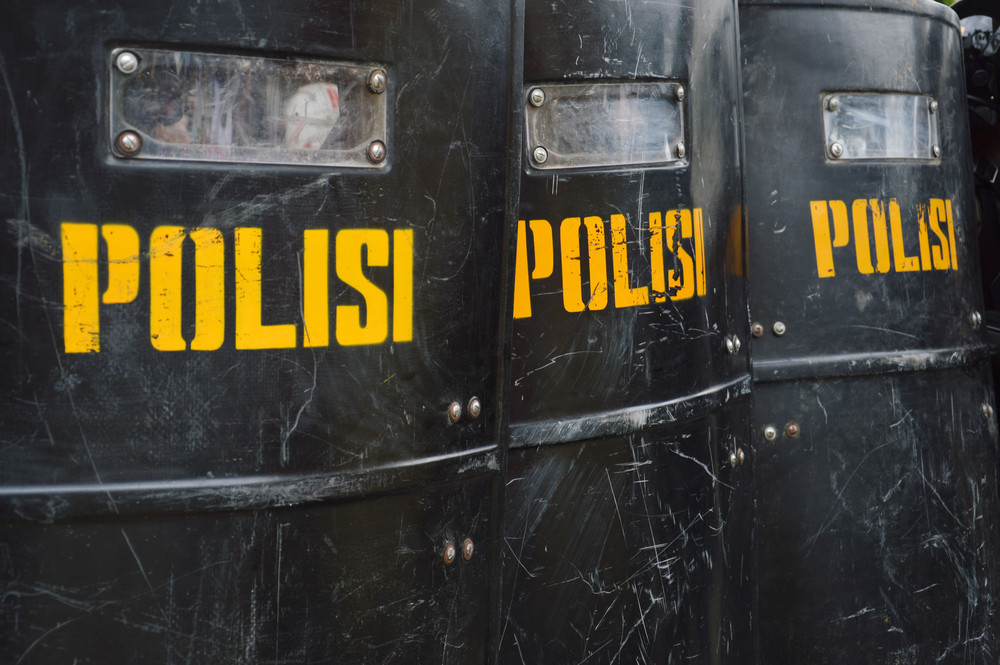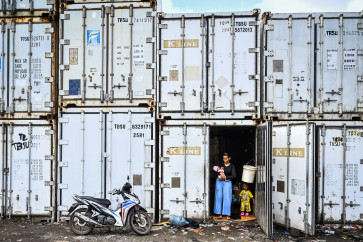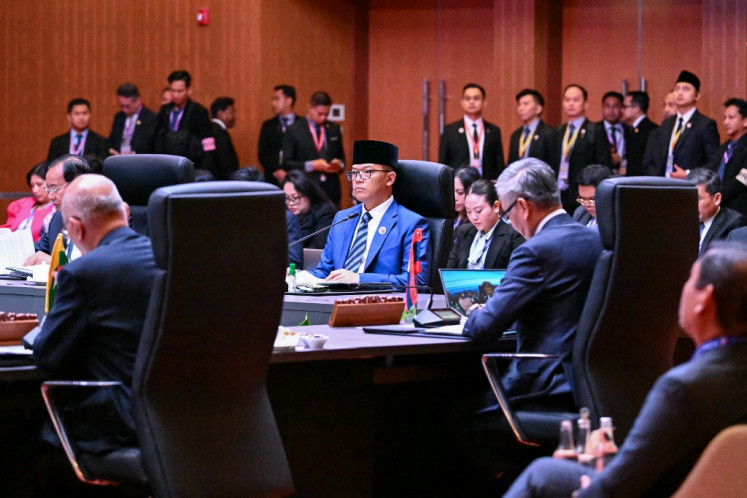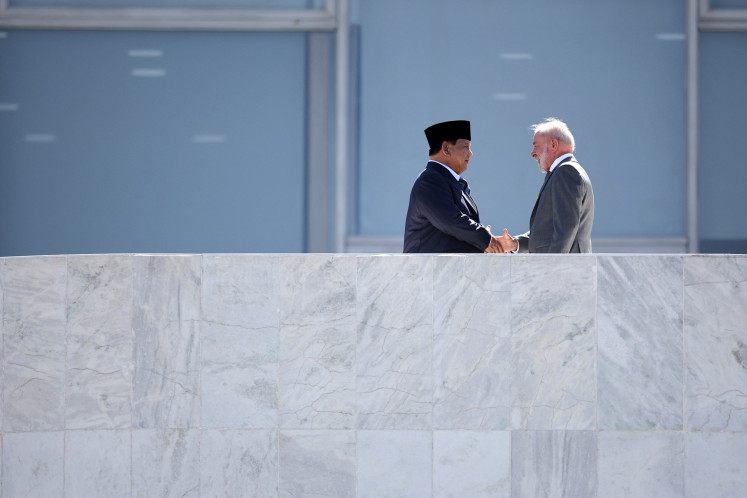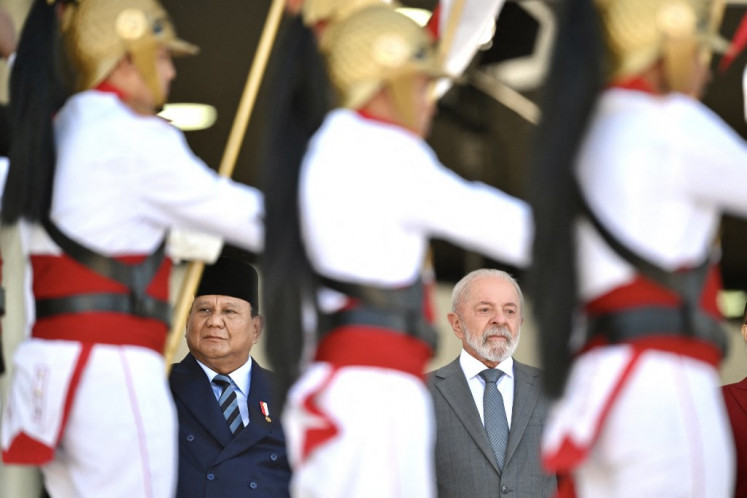Popular Reads
Top Results
Can't find what you're looking for?
View all search resultsPopular Reads
Top Results
Can't find what you're looking for?
View all search resultsIn Memoriam: Bambang W. Umar never gave up on police
Change text size
Gift Premium Articles
to Anyone
T
he police are usually the target of various campaigns and human rights advocates. But they can also be an ally of human rights and anticorruption activists. The loss of the police as an ally is reflected in the passing of Bambang Widodo Umar on Monday, Jan. 14.
Born in Ngawi, East Java, on Dec. 10, 1947, Bambang completed his elementary school education in Surabaya, East Java, in 1960 and graduated from SMA 3 state high school in 1966. He became a member of the police after graduating from the Armed Forces Academy (Akabri) in 1971. Bambang also attended the Police Staff College (PTIK) in 1978 and the National Police Staff and Command School (Sespim) in 1984 after which he was appointed to be a senior detective in 1985. He was a recipient of the highest awards from the state and the National Police.
He rose to prominence when he and seven other senior officers came out in support of then-president Abdurrahman “Gus Dur” Wahid, who had dismissed police chief Bimantoro Gen. Rusdihardjo for his reported refusal to arrest former president Soeharto’s youngest son, Tommy Soeharto, in relation to the bombing of the Jakarta Stock Exchange, as cited by Gus Dur’s biographer Greg Barton.
The incident became even more complicated after Gus Dur’s impeachment. Bambang and the other officers were later arrested and during interrogation he was intensively questioned about his relationship with activists. I met him a number of times with slain activist Munir S. Thalib.
When Munir was murdered in September 2004, Bambang was deeply skeptical about the National Police’s will and capacity to reveal the mastermind and actors behind the murder. Investigators assigned to the case, Bambang noted then, numbered less than those handling bombings, although “big” cases usually appealed to those seeking promotion. Bambang was therefore convinced that only international pressure would solve Munir’s murder, which remains unsolved.
When Corruption Eradication Commission (KPK) senior investigator Novel Baswedan was attacked with acid in April 2017 Bambang was outraged. As in Munir’s case he doubted the police’s ability to solve the case. He cited their reluctance to arrest Novel’s attackers. The police instead focused on reports by KPK director of investigations Brig. Gen. Aris Budiman and a National Police officer investigation corruption, Erwanto, who reported Novel for defamation.
Taking note of the stance the police were taking against Novel, Bambang was convinced that the case could only be solved by an independent team under the auspices of President Joko “Jokowi” Widodo. Last week, the team was established but its independence is highly questionable as it is led by the National Police.
Despite being dismissed from an institution that he dearly loved, he never gave up on the police. He became even more serious about police reform, especially with his inside knowledge and experience as a long-time police officer educated and trained within the dominant militaristic culture of the corps. Bambang’s closeness with the late Munir and his growing reputation as a pro-reform former police officer made him a welcome figure within the Commission for Missing Persons and Victims of Violence (Kontras) on whose board he sat.
In January 2017, he cited the “very concerning” situation of the National Commission on Human Rights (Komnas HAM). “Please help, bung,[brother]” he told me. “Encourage friends with courage to apply as commissioners,” he said when he was on its selection committee.
He would also actively provide input and encourage anticorruption activists when they were targets of criminalization and persecution. Bambang was also active in Transparency International Indonesia and supported the KPK. In 2012, he was among those who signed an online petition in support of the antigraft body, which was then under attack from all corners, including lawmakers who were attempting to revise the KPK law to undermine its authority. The attempts to criminalize KPK leaders from National Police headquarters were also evident at the time and it included the arrest of leading KPK investigator Novel.
Bambang wrote articles and was widely quoted in the mass media on his thoughts about human rights and corruption. His intense involvement in such issues would often make him a target from the very institution he came from.
Bambang was an avid student and educator. He achieved a Masters degree in sociology at Padjadjaran University in Bandung in 1992, where he also gained his doctorate a few years later. He lectured in postgraduate studies at five higher education institutions — including his alma mater the PTIK — and police studies at the University of Indonesia.
His articles showed his conviction that the police is a civilian institution, and that therefore the militarism that has been in place since the New Order regime is a mistake. The law on the military separated both institutions after the regime fell, but the militaristic remnants still remain.
Bambang would often display his conviction that the police’s role was to prevent and detect crime, preserve public order and provide assistance to the public. However, in executing their authority, he would always remind them of the importance of using that power legally and to respect human rights.
He was aware that a perfect police force did not exist, especially when it comes to discretion. However, he would repeatedly remind us that this was precisely why we needed a functioning accountability system. With such knowledge and insight, it was natural that he joined a number of civil society organizations.
I met him for the last time at Persahabatan General Hospital in East Jakarta, where he was being treated. Holding my hands tightly, he repeatedly tried to say something, also scratching on paper, but his body could not follow his brain; he was clearly still sharp, recognizing all his visitors. Ismawati, his wife, had moved to a rented space near the hospital to be near him with their daughters.
When I bid him farewell, I conveyed the prayers of fellow activists for his recovery. I also told him we all hoped to be with him again to discuss urgent reforms. Bambang’s death is a great loss. It is not easy for Indonesia to have a police figure who is a critical thinker and a man of action who was willing to sacrifice himself for the ideal aspirations of Indonesia’s police force.
Rest in peace, Pak Bambang.
***
The writer is on the board of the independent Commission for Missing Persons and Victims of Violence (Kontras), and leads the Indonesian chapter of Amnesty International.

